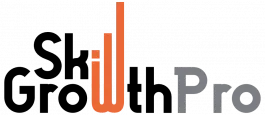Do you have difficulties contributing anything of value to a conversation? Have you ever found yourself oblivious to a topic everyone else seems to know about?
If you’ve answered “yes” to either of these questions, then there’s good news and bad news.
The good news is that you don’t need a Ph.D. in astrophysics or philosophy. All you need is something called general knowledge.
In a nutshell, general knowledge is an average understanding of topics and issues relevant to our day-to-day lives. Right off the bat, this includes:
- Religion
- Science
- Math
- Logic
- Technology
- Sports (yay!)
- Politics (urgh!)
- Culture and art
- Entertainment
- History
- current affairs
Very likely, you’ve got a mid-range hard drive of these topics in your noggin already. If you think otherwise, that brings us to the bad news:
General knowledge is something you might need to work on. You’ll need it to improve many aspects of your intellectual and social life. There’s also a benefit to having it if you want to move on to specialized knowledge.
Don’t worry, though! We’ve got you covered!
Stick around, brew some coffee and pull up your favorite way of taking notes, and keep reading!
General knowledge 101 is officially in session!
Here’s How To Improve General Knowledge:
To improve your general knowledge, you’ll need to take in and understand a lot of information from various sources and then add some patience.
Table of Contents

Making progress in developing general knowledge won’t have to take forever. Be that as it may, I’ve found that it doesn’t happen overnight either.
It’s great to acknowledge the areas where your general knowledge is weaker. Identifying your weaknesses will allow you to actually work on them.
So how can you get started with improving?
Read and take in as much “relevant” content as possible.
Now, I get it. Reading may not be your cup of tea, but reading can mean much more than sitting next to a fireplace with a book.
You can also read blogs, news sources, and a variety of other content online. This can all help you improve your general knowledge.
In place of reading, you can also opt for watching videos, listening to podcasts or audiobooks, taking different online or in-person courses, and joining communities to gain more general knowledge.
Video content and tutorials can be incredibly helpful if you’re a visual learner.
Audio content is also highly beneficial as you can listen and learn while completing different tasks such as driving or cleaning your home. You can play them at whatever speed suits you, and it is a great way to be productive in your downtime.
Recommended Reading: Is learning a skill or an ability?
How Can I Gain Knowledge Day-by-Day?
It’s great to take a long-term view of gaining knowledge. It’s far better to slowly but consistently make progress than to try and learn everything in a short time.
This will quickly become overwhelming and unrealistic.
If your goal is to gain a lot of general knowledge, you have to adjust your lifestyle to enable this.
Identify what areas are weaker and need to be worked on. Then develop productive habits and or daily routines that allow you to improve.
Here is more of a step by step:
Gaining knowledge daily is achieved by exposing yourself to mediums of information. By mediums of information, I’m talking about:
- Video – television, documentaries, online video content (YouTube, Netflix, etc.)
- Audio – radio, podcasts, audiobooks, etc.
- The internet
- News
- Social media
- Printed media
However, exposure can only do so much for you when you’re trying to build a library of knowledge gradually. Knowledge involves you consolidating information in your mind.
What I mean by this is that you need to consume information and keep it there for future reference or use. A simple way to do this would be to give yourself a post-knowledge quiz.
A post-knowledge quiz is a bit like giving yourself an exam based on the information you’ve just consumed. For example, imagine that you just watched a video on how to take better care of houseplants.
After the video, ask yourself some questions and answer them. Then, recheck the video to see if you’ve given the correct answers.
Doing this achieves two things:
First, it trains your ability to retain information. Keeping information in that noggin of yours is a fundamental condition to broaden your knowledge base.
Second, it activates the reward center of your brain whenever you get an answer right. As a result, you’ll be more motivated to continue performing this exercise daily.
When you do that, you’ll be learning more.
What questions do you include in your post-test? Since you’re after a general understanding of a topic, you don’t need to get lost in the weeds of technicalities and jargon.
I like asking myself the basics. These are:
- “What was it (whatever I watched, listened to, or read) about?”
- “When did this occur or what was the setting?” (best for history, literature, current events, politics, and even art)
- “How does it work?” or “How do I go about this?” (for math, science, or logic)
- “Under what field of study is this” (i.e., politics, philosophy, literature, science, etc.)
Do you need to write an entire book report on the information you’ve read? The answer is, “not really.”
You can even run down this checklist in your head. Still, another great tool you can use to transfer the content and information you receive into actual knowledge you can use is note-taking.
It’s great to start taking notes in your day-to-day life. Although physically writing things down has been proven to be better for memory and recall, it doesn’t matter how you decide to take notes.
You can write things down in a small notebook or keep it all digital on your smartphone.
Taking notes is simply a great habit to get started with.
It allows us to organize our minds and think through different ideas.
If done consistently, taking notes can help improve your general knowledge a lot over time.
How to Gain Knowledge Fast
Gaining general knowledge daily and in incremental amounts is one thing. To be knowledgeable faster, you’ll need to be SMART in your approach.
I put SMART in all caps, not for emphasis. Other than being a clever play on words for me, SMART is an acronym.
It stands for:
- Simple
- Measurable
- Attainable
- Realistic
- Time-bound
The first three criteria involve you picking a subject matter you think you can manage from the get-go.
For example, if you want to learn the basics of economics, choose a simple topic like the concept of supply and demand or fiat. You may be better off delaying the more advanced stuff like macroeconomics, inflation rates, and GDPs.
Measuring your grasp of the topics will be covered by the post-test method we talked about earlier.
I suggest going with simpler topics because of the last four criteria – realisticness and time-orientedness.
Simpler topics are easier to grasp and are less likely to discourage you. For this reason, you’ll be able to put a deadline on learning such topics.
You’ll be able to tell yourself something like:
“By the end of this week, I’ll have understood the concept of supply and demand.”
To learn things quickly, holding yourself to a deadline can help. And, of course, you can do this if your learning goals are simple, measurable, attainable, and realistic.
Choose your topics and study up according to the SMART guideline. You’ll be more knowledgeable after a week, or even faster!
How To Improve Skills
We’ve talked about how to improve our knowledge. Getting better at a skill or picking a new one up involves a similar process. During my continuous self-improvement journey, I’ve learned that one main thing bolsters both knowledge and skill – repetition.
It might seem like you’re taking on additional work by adding skills to the list of things you need to improve or acquire. In truth, improving your skills translates to a better knowledge of something. The same is also true the other way around.
Whether you’re trying to master a skill like driving or knowing the basics of algebra by heart, practice makes perfect.
Skills and knowledge operate in different domains. In other words, skills are within the psychomotor domain, whereas knowledge is in the cognitive domain.
The benefit of practice will be the same. However, the way it’s done for both will have slight differences.
To get better at a skill, you need to perform it as often as you can. It doesn’t matter what the skill is. It can be cooking. Your skill might be performing a kettlebell swing or driving. The key is to do it as often as you can for as long as you can.
In the case of knowledge, you can improve it by consolidating it. By consolidation, I mean burning it into your mind. The strategies of taking notes and testing yourself are great for getting this done.
To continue to speed up the process, you can try bringing what you’ve learned up in daily conversations. Find some like-minded or like-interested people to hang out with, and you can all help each other improve. This way, you get the benefit of “cognitive practice” and feedback.

Tools to Improve General Knowledge
There are several tools you can use to add to your general knowledge library.
It has never been easier to access a ridiculous amount of information. Most of the questions you have can be answered with a simple Google search on your smartphone. Still, besides researching online, you can use many other tools to improve your general knowledge.
Here are some great tools you can use to becoming a brighter you and improve your general knowledge:
Audiobooks
The problem many of us have today when it comes to reading is simply time. Reading is an active process where you need to remain stationary and constantly keep your eyes on paper or a screen. In short, you’re either reading or your not, there’s no multitasking.
Audiobooks revolutionize this, and they can transform your process of general knowledge acquisition. You now have the ability to “read” and learn without physically having to read.
So, as you commute to work or perform simple tasks, you can be more productive and improve your general knowledge.
With platforms like Audible, so many audiobooks on numerous subjects and niches are available with a subscription. It’s affordable and simply a great way to have fun while learning.
An added benefit is that you can listen at any speed you prefer. This can make listening to audiobooks a much faster way to learn than reading that same book in the traditional sense.
You can download these on your phone and listen to them while doing otherwise tedious, mundane tasks.
Recommended Reading: Can you learn while listening to music?
Podcasts
Listening to podcasts is a great way to improve your general knowledge. The medium has gained a lot of popularity recently and is pretty much a modern version of on-demand modern talk radio.
There are podcasts available on pretty much every topic imaginable, and there are even shows that cover various general knowledge topics. What’s incredible is that they can deliver information to you in an educational but still entertaining fashion. This definitely allows you to stay interested and get the most out of it.
All modern phones have a compatible podcast app that makes it convenient to listen to on the go, just like with audiobooks.
Podcasts focus a bit more on entertainment value compared to most audiobooks which generally focus on delivering information.
All in all, they are free and excellent at helping improve a person’s general knowledge.
Online Learning Platforms
There are no shortages of learning opportunities online. And, if you’re a visual learner, platforms like LinkedIn Learning, MasterClass, and Udemy are great options.
Online learning platforms like the ones I’ve just name-dropped are helpful with improving general knowledge and also skills.
For example, if you sign up for a course with MasterClass, you’ll pick up skills in many fields like sports, writing, and cooking, depending on what course you take. There are courses available on pretty much every topic imaginable, and they can be very affordable.
In short, platforms like LinkedIn Learning and Skillshare are fantastic resources valuable for growing your skills.
Mental Skill Apps
The acquisition of general knowledge gets easier with the development of mental skills.
“What are mental skills?” you ask?
Just think of the following:
- Memory
- Abstract reasoning (e.g., recognizing patterns, math)
- Verbal reasoning
- Vocabulary
- Reaction (your ability to call upon your mental skills at a moment’s notice)
Reading, listening to podcasts/audiobooks, online courses, and taking notes will improve all of these. Still, there is another fantastic resource available to help you improve on these mental skills.
Mental skill apps.
These apps are great for getting a mental workout in, but it’s not just about boring quizzes. These app developers want you to keep coming back and using their apps. Hence, they focus on making their product entertaining.
This allows you to gamify the learning process, which is one of the best ways to stay motivated and keep progressing.
Some great options are mental skill apps like Luminosity and CogniFit. Try some out, and you’ll get a kick out of improving your mental sharpness.
Newsletters
Many of us have an email inbox full of unread, let’s be honest here, unimportant junk mail.
This creates the common association that email is just a waste of time.
It doesn’t have to be, though!
They can be a simple way to improve your general knowledge and in a very productive way. Rather than searching through several websites to find out what is happening in the world, some newsletters do this heavy lifting for us.
They can be a quick way to stay up to date on all the relevant topics and learn.
Unsubscribe from some of that junk you have in your inbox and get smarter with the help of some better newsletters. Some great ones to check out include:
- Morning Brew – become smarter in just 5 minutes
- The Skimm
- Big Think
Books
It may feel like reading books is old school and slow. Still, it is one of the best ways to learn about different things.
Reading will never go out of fashion, and books will forever be one of the best ways to acquire knowledge.
Often, an author shares everything they learned over years of studying a career or being a professional in their fields in a book. Isn’t it amazing that we then have access to all that information for usually less than $20?
Final Thoughts
By improving general knowledge, you also provide yourself a basic foundation for understanding more complex topics. To improve your library of general information, you’ll have to expose yourself to varying content and assess your retention of that information.
You then need to invest the time and patience necessary for the process to work.
Audiobooks and podcasts are valuable resources for improving how much you know. Tools like online learning platforms and apps bolster what you do with what you know.
General knowledge may not win you any Nobel Peace Prizes. Still, having it in spades will make you better at everything else life may throw your way.
Sources
https://rasmussen.libanswers.com/faq/265030
https://www.neuroscientificallychallenged.com/blog/know-your-brain-reward-system



